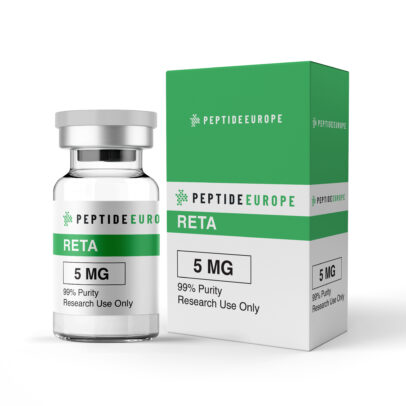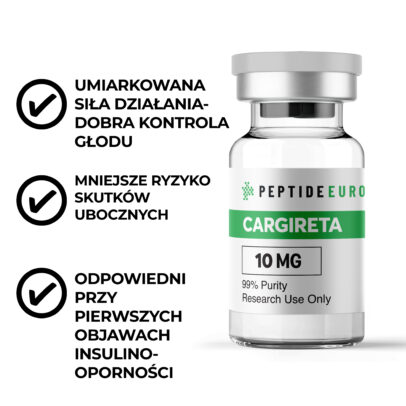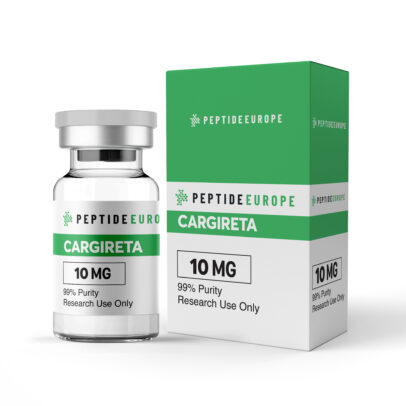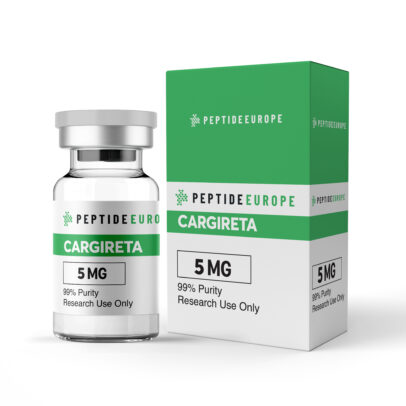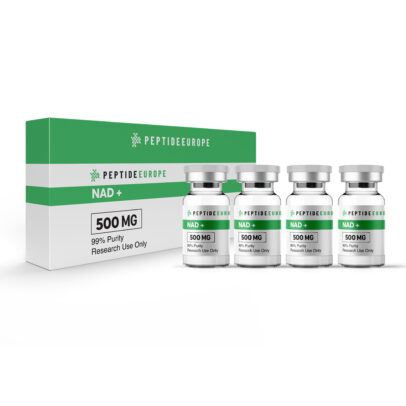Peptides for Better Sleep: A Comprehensive Guide to Restful Nights
-
PepEurope
- Posted on
- 0 comments

Peptides for better sleep, Do you often toss and turn in bed, unable to fall asleep? You are not alone. Millions of people around the world struggle with insomnia, frequent awakenings, and poor sleep quality. Sleep deprivation not only affects our daily productivity, but also has serious consequences for our physical and mental health.
In today’s fast-paced lifestyle, many people turn to pharmaceutical sleep aids, which unfortunately often come with unwanted side effects and the risk of addiction. Fortunately, peptides offer a natural, scientifically proven solution to help you achieve deep, restorative sleep. These small protein molecules are gaining increasing recognition in the wellness industry for their ability to regulate your sleep cycle and aid in recovery.
In this comprehensive guide, we’ll discuss the role of peptides in improving sleep quality, how they work, and how to effectively implement them into your daily routine. After reading this guide, you’ll have the knowledge to take back control of your sleep and wake up refreshed and energized every morning.
The importance of sleep for health and well-being
Why is sleep important?
Peptides for better sleep It’s not a luxury – it’s a necessity. During sleep, the body goes through key processes, such as cell regeneration, memory consolidation and hormone regulation. If the quality of sleep is poor, it can lead to a number of negative effects on health and well-being.
The Science of Sleep Cycles
Sleep consists of several stages, each of which plays a unique role in physical and mental regeneration:
- NREM sleep (light sleep) – transition from wakefulness to sleep, the body begins to relax and the heart rate slows down.
- NREM sleep (deeper sleep) – in this phase, tissue regeneration and cell growth occur.
- Slow wave sleep (deep sleep) – crucial for immunity, regeneration and hormone secretion.
- REM sleep (rapid eye movement) – in this phase the brain is very active, dreams occur, and information is processed and consolidated in memory.
Consequences of poor sleep quality
Lack of adequate sleep can lead to:
- Weakening of the immune system – increasing susceptibility to disease.
- Weight gain – disruptions in hunger hormones can lead to increased appetite.
- Weakening of cognitive functions – reduced concentration, creativity and problem-solving abilities.
- Mood disorders – increased risk of anxiety and depression.
- Heart disease and diabetes – chronic lack of sleep can lead to health problems.
Understanding how sleep affects your health is the first step to improving it. Peptides may be one of the most effective solutions for those struggling with sleep problems.
Peptides and Their Role in Improving Sleep Quality
What are peptides?
Peptides are short chains of amino acids that act as biological messengers, regulating various bodily functions, including hormone production, immune responses, and neurological activity. When it comes to sleep, peptides help modulate the nervous system, promote relaxation, and optimize the secretion of sleep-related hormones.
Key peptides to support sleep
- Melatonin peptides – regulate the sleep-wake cycle, helping to maintain the natural circadian rhythm.
- GABA peptides (gamma-aminobutyric acid) – reduce the excitability of neurons, relieve anxiety and calm the mind.
- Delta Sleep-Inducing Peptide (DSIP) – supports deep sleep phases, improves its quality and shortens the time it takes to fall asleep.
- Growth hormone-stimulating peptides (GHRP) – support night-time regeneration and cell repair by increasing growth hormone levels.
Each of these peptides has unique properties, and their appropriate use can significantly improve the quality of sleep.
CARGIRETA 10mg NEW
MONTHLY SET NAD + -> Energy and Vitality Boost
How do peptides improve sleep quality?
Mechanism of action
Peptides support sleep by:
✔ Increased deep sleep – ensuring better regeneration of the body.
✔ Reduction of nighttime awakenings – helping to maintain sleep continuity.
✔ Extension of REM phase – crucial for cognitive functions, memory and mood regulation.
✔ Reducing stress levels – relaxing the body and mind before sleep.
Scientific research suggests that peptide supplementation can significantly improve sleep efficiency and duration, making it a promising natural alternative to pharmaceutical sleep aids.
How to use peptides for better sleep?
Incorporating peptides into your evening routine
🔹 Dosage: Follow individual peptide recommendations to ensure safety and effectiveness.
🔹 Form of application: Peptides can be administered orally, as subcutaneous injections, creams or nasal sprays.
🔹 Combining peptides: Combining different peptides with other sleep-promoting methods may produce better results.
🔹 Creating the right sleep environment: A dark, quiet and cool room is conducive to better rest.
Additional tips to improve your sleep quality
✔ Physical activity – regular exercise improves the quality of sleep.
✔ Limit caffeine – avoiding it in the afternoon and evening prevents insomnia.
✔ Relaxation before sleep – techniques such as yoga, deep breathing or meditation help to quiet the mind.
✔ Circadian rhythm regulation – exposure to natural light during the day and avoiding blue light in the evening optimizes your sleep cycle.
Summary
Peptides for better sleep are a breakthrough solution for people suffering from sleep disorders. Combined with healthy habits, they can significantly improve the quality of your sleep and make you wake up every morning full of energy. Read here, how peptides work!




